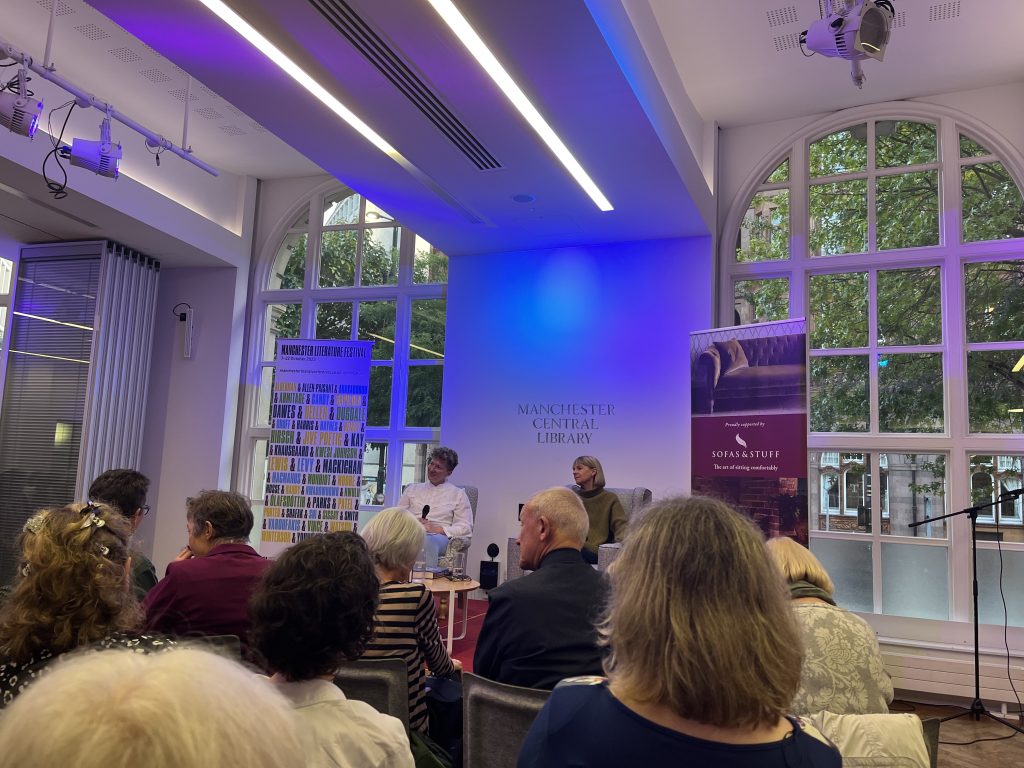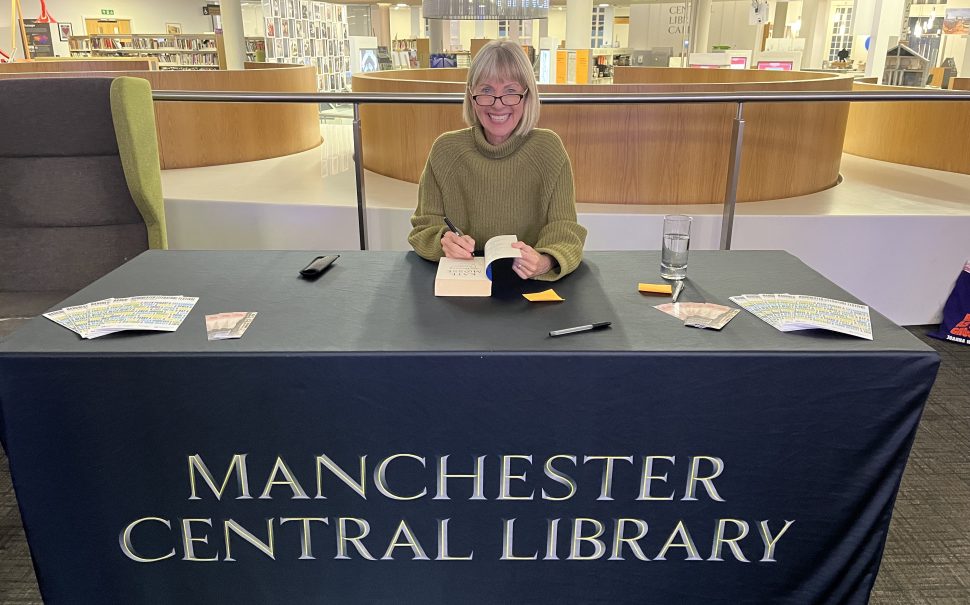Internationally renowned author Kate Mosse kicked off the Manchester Literature Festival in style with an event discussing her new novel The Ghost Ship on Saturday.
Kate Mosse In Conversation, hosted by fellow historical fiction writer Beth Underdown, marked the official opening of the 18th edition of the festival, which has had several preview events over the past few weeks.
The book charts adventure, danger and love between pirates on the high seas amid the backdrop of the 17th-century French religious civil wars.
Mosse is the bestselling author of short stories, non-fiction, and ten novels, most famously Labyrinth and the Joubert Family Chronicles.
The Ghost Ship is the third in the Joubert series but can also be read as a standalone. “Pirate ships are floating republics; they exist separately from society,” she explained, and so the novel holds up by itself.
Like many of Mosse’s works The Ghost Ship is a story centred on the struggles of women in a man’s world, and it’s clear that this is a subject the author feels passionately about.
Her female characters are all simultaneously “special” and “women who could have really lived” – “maybe women I wish I could have been,” she said.
The event at the Manchester Central Library began with an introduction by Underdown before Mosse read the opening section of the new novel.
It had the audience gripped from its very first line: “Today, I am sentenced to swing.”
Mosse was an engaging and lyrical speaker, offering the crowd detailed insights of her research process, her travels around the world, and how she envisions the world she creates.
“I discover as I write,” she said. Having done an enormous amount of research, she then “need[s] to discover the story” and “hope my characters will speak to me.”
As expected for a writer of historical fiction, we were treated to a history lesson too, sweeping from the persecution of the Hugenots in 17th-century France to the wine regions of South Africa.
The inspiration for the series came from travelling in the Western Cape of South Africa and discovering that just over 30 families of Hugenot refugees – who settled there at the invitation of the Dutch East India Company – were responsible for the region’s entire wine industry.
It was “a piece of history that blew me away.”
There was a poignantly topical note to the conversation too, as her novels revolve around refugees, “second-class citizens.”
But she said: “We need to see positive stories in fiction as well,” which is why her approach focuses on a “story of hope and the possibility of making a new home.”

The Ghost Ship came from a lifelong fascination with pirates: her favourite book as a child was the Ladybird Book of Pirates, which introduced her to female buccaneers Mary Reed and Anne Bonny.
Women were considered to be bad luck on ships, but the existence of real historical figures like Reed and Bonny – who were also lovers – meant that the story could really have happened. But in order for heroine Louise to be on a ship, “she had to be a renegade: she had to turn pirate.”
The plausibility of the story is important to her, which explains the ample research that goes into each book. “The reader will lose faith in your story” without it, she said.
Some readers of The Ghost Ship had even mistaken her for a sailor because of the accuracy of the maritime passages – despite it all being written on dry land. “I hate being in the sea,” she confessed.
She was also full of advice for writers, having given a historical fiction masterclass earlier in the day. She said: “If something goes a bit soggy [in a draft] I think, ‘What does it need?’
“Probably a murder,” was the answer.
“It’s a great privilege to be a full-time writer but it’s also hard work and it’s important to keep the joy,” she added.
To end, Mosse gave us a sneak preview of what she plans to write after the final instalment of the Joubert Chronicles, which will hit shelves in October next year.
“Ready for a new challenge,” she will turn to crime fiction, focusing on a female reporter investigating real cold murder cases in the early years after the Second World War.
The crowd prodded her for more information but fortunately for her publisher, eager to keep a lid on secrets, the time was up on a hugely engaging event.
The festival runs until 22 October at several venues across Manchester and with more “Bookend” events later in November. Speakers include George Monbiot, Monica Heisey, and Richard Armitage. Tickets and more information are available here.




